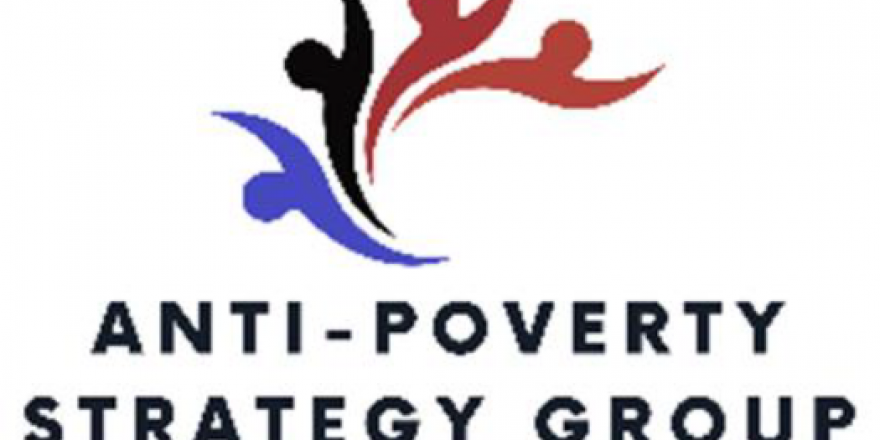
Press release from the Anti-Poverty Strategy Group
Marking International Day for the Eradication of Poverty, 17th October 2025
The Executive must do whatever it takes to end poverty
The Anti-Poverty Strategy Group is marking the International Day for the Eradication of Poverty by calling on the Northern Ireland Executive to do whatever it takes to end poverty.
The Group is made up of around 20 civil society organisations including charities, trade unions, community and voluntary sector service providers and rights groups. These organisations had previously been part of a co-design process with the Department for Communities and the group now campaigns for an effective Anti-Poverty Strategy.
The Anti-Poverty Strategy Group has recommended that the Executive commits to six high level outcomes in its strategy, including the creation of an Anti-Poverty Act to protect the rights of people experiencing or at risk of poverty. They have also called for targets to be set for reducing child poverty and poverty in later life, working towards eradication by 2045. The group wants to see actions from government that will ensure everyone has access to enough income and services to meet their essential needs and that improve the environment in Northern Ireland’s most deprived areas.
Earlier this week the Assembly debated a motion on the alarming rate of child poverty in Northern Ireland, recommending some key policies that have worked elsewhere such as a child payment, affordable childcare and expanding access to free school meals.
The Anti-Poverty Strategy Group was pleased that Assembly members from across all parties spoke passionately about the impact of child poverty and the need for urgent, meaningful actions to improve life for the 104,000 children in Northern Ireland estimated to be living below the poverty line. Almost a quarter of children live in relative poverty with one in five living in absolute poverty, according to Northern Ireland Statistics and Research Agency.[1] Rates of poverty for working age adults and older people are also stubbornly high at 15% and 12% respectively.[2]
Chair of the Anti-Poverty Strategy Group Kellie Turtle said:
‘The Assembly has echoed what civil society organisations have been saying for some time – that the Northern Ireland Executive must be ambitious in its plans to tackle poverty. On this day for the eradication of poverty, we are reminded that poverty is not inevitable and can be eradicated through political will and courageous policy making. We urge the Executive to embrace the choices necessary to break the cycle of poverty, something that can’t be achieved by only delivering more of the same.
It is time for the Executive to turn this unanimous commitment into action through an ambitious, evidence-based Anti-Poverty Strategy with concrete, costed interventions and measurable time-bound targets, underpinned by legislation and effective accountability mechanisms. There is a moral imperative for the Executive to do whatever it takes to end poverty in Northern Ireland to protect people’s right to dignity and a decent quality of life.’
[2] 15% of working age adults live in relative poverty before housing costs. 12% of pensioners live in relative poverty after housing costs, which is the government’s preferred way of reporting on poverty for this age group as they have lower expenses related to housing on average.



